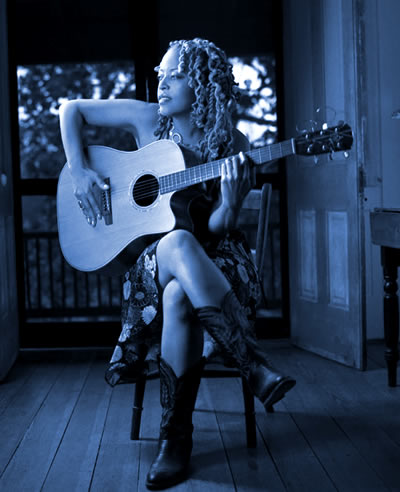
LOVERLY • Cassandra Wilson
Loverly is laughably being referred to as Cassandra Wilson's "return-to-jazz." Laughably not because it isn't jazz--it is, even (or especially) by Wynton Marsalis' standards: swinging, blues-based improvisation. It is risible to call it Wilson's return because she never left. Though her last record of traditional jazz standards was twenty years ago, all the intervening recordings have been full of, er, swinging, blues-based improvisation. What pushes the "return" button in the minds of publicists and facile critics is the fact that Loverly is replete with the kinds of tunes that they recognize as "Jazz" with a capital "J."
Some songs here have been trotted out countless times: Juan Tizol and Duke Ellington's "Caravan," Luiz Bonfá and Antonio Maria's "Black Orpheus," and Ray Noble's "The Very Thought of You" have haunted the lounges and clubs of America since they were written; some less so--Allie Wrubel and Herb Magidson's "Gone with the Wind," Fran Landesman and Tommy Wolf's "Spring Can Really Hang You Up the Most." Others like Robert Johnson's "Dust My Broom" and the traditional "St. James Infirmary" continue the folk-blues proclivities that had Wilson previously recording Son House's "Death Letter Blues" and Johnson's "Come On In My Kitchen."
Familiar or obscure, Tin Pan Alley or Mississippi delta, Wilson and her cohorts reinvent each and every one--and make it sound easy. This reinvention eschews the "downtown jazz" method of ironic deconstruction in favor of merely assembling a cast of musicians with distinctive musical personalities and letting them play the tunes as if they were new, as they hear them, with no concern for whether it is jazz of the traditional or avant variety, pop, or any other stylistic constraint.
Crucial to the success of this endeavor is guitarist Marvin Sewell, whose approach to standards and the blues is uniquely his own. The opener, Oscar Hammerstein II and Sigmund Romberg's "Lover Come Back to Me," is played as an up-tempo swing but neither Sewell nor pianist Jason Moran play it in typical manner. Sewell's rhythmic comping has a jerky urgency that pulls it into the hectic 21st century, while Moran's solo has an angular lyricism that succeeds on its own terms, neither forsaking the swing era nor being a slave to it.
And of course there is Wilson's voice. Elegant and earthy are not descriptions often applied to the same person, but they both fit this husky-toned singer. Her low range and strong but never showy singing turn any tune she chooses into a Cassandra Wilson song.
If Loverly is different than the previous half-dozen Wilson recordings it is not because of the material but because of the palpable sense that the musicians were having a helluva time making it. This may have been true of past CDs--probably was--but on Loverly we too feel encompassed in this good feeling. Wilson continues to show us that quiet and relaxed don't have to mean somnambulant, and that the world can always use another great version of "Caravan." • Michael Ross
listen to clips return to covers
cassandrawilson.com her myspace